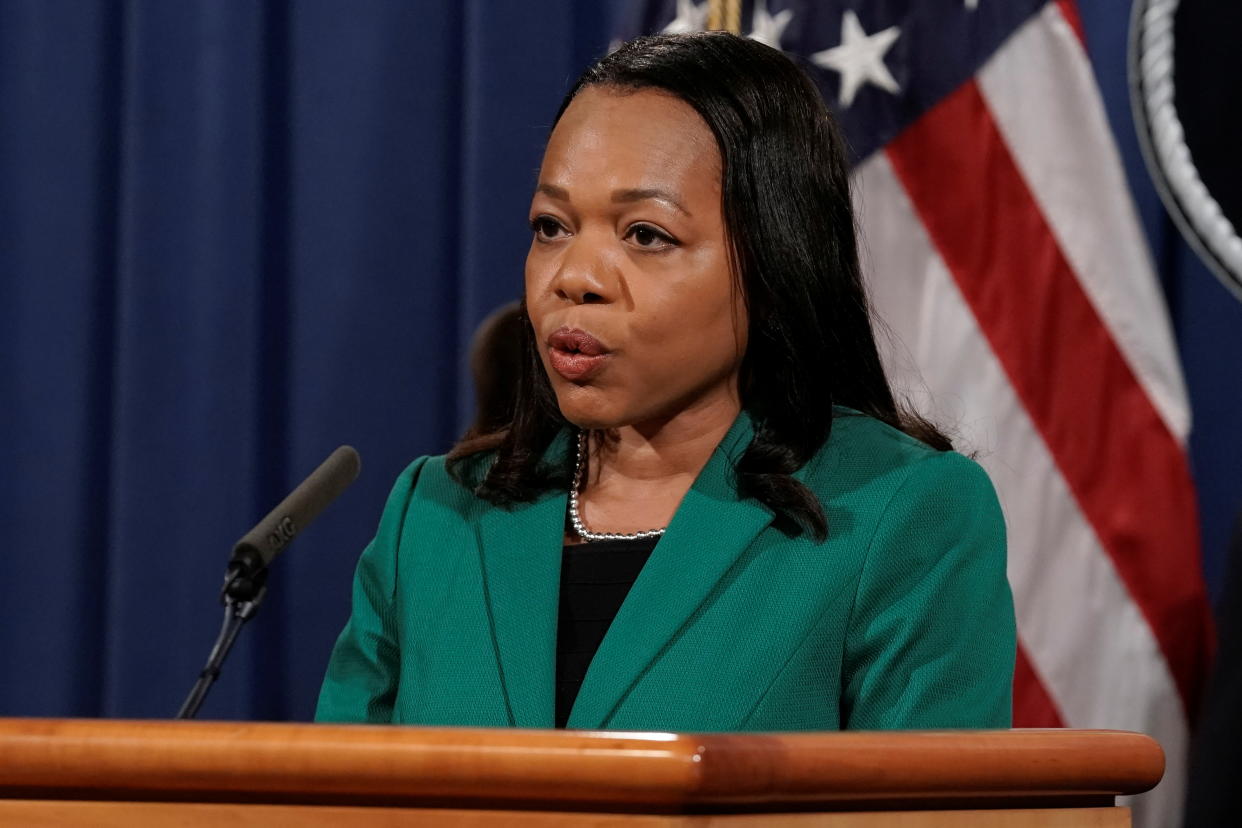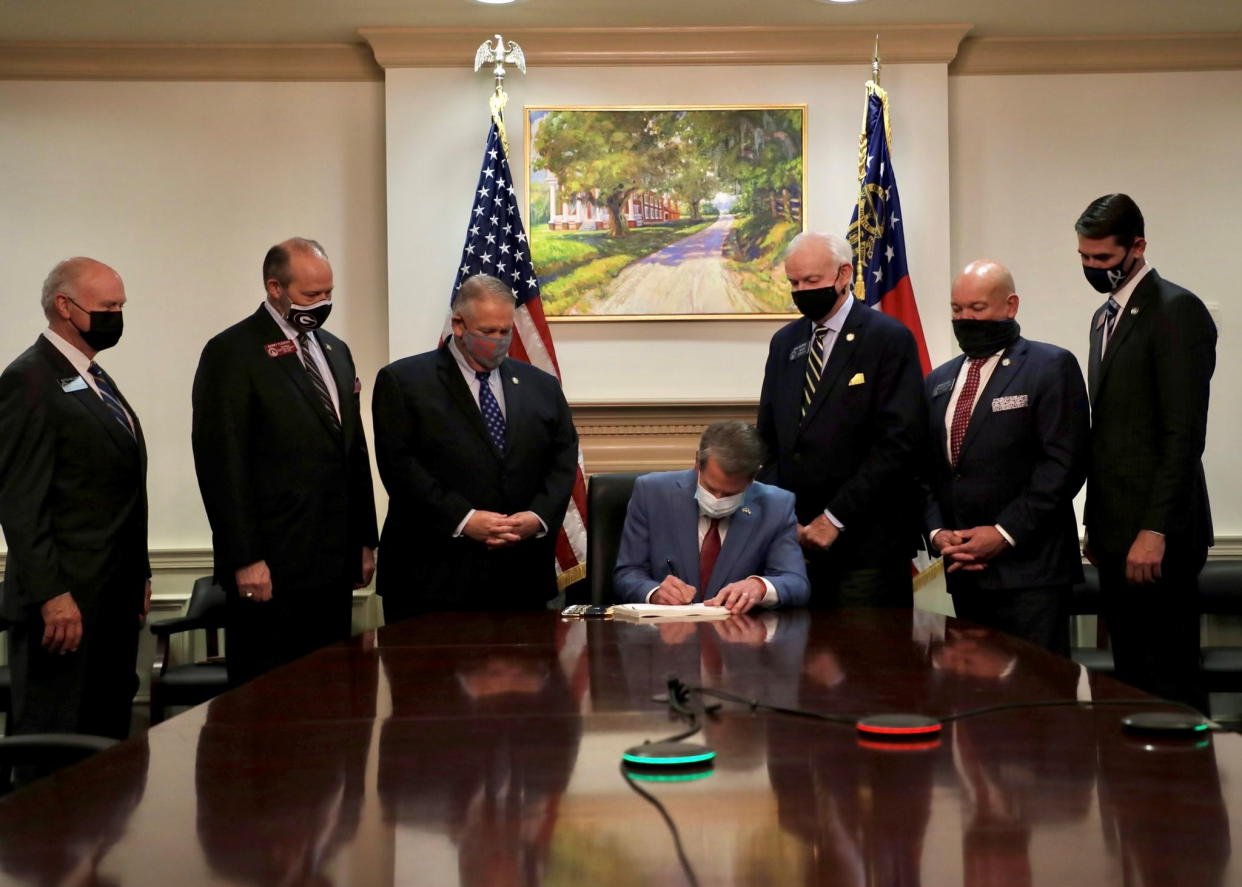Merrick Garland's Justice Department sues Georgia over its voting law
The Justice Department announced Friday it is suing the state of Georgia over a voting law passed in March, alleging that the Republican-controlled state Legislature intended to make it harder for minority voters to cast ballots in future elections.
“Our complaint alleges that recent changes to Georgia’s election laws were enacted with the purpose of denying or abridging the right of Black Georgians to vote on account of their race or color, in violation of Section 2 of the Voting Rights Act,” Attorney General Merrick Garland said at a press conference.
Kristen Clarke, the assistant attorney general overseeing the Justice Department’s Civil Rights Division, said the lawsuit targets a few specific provisions of the Georgia law, which sparked an uproar when it was passed.

Clarke pointed to portions of the law that cut down on the number of drop boxes in parts of Atlanta, that made it a crime to hand out water or food to voters standing in line waiting to cast ballots, and that limited the ability of voters to have their ballots counted if they had recently moved.
A Justice Department press release noted that the lawsuit targeted numerous other portions of the law as well, such as “a provision banning government entities from distributing unsolicited absentee ballot applications,” the shortening of the deadline to request an absentee ballot, and restrictions on what kind of IDs voters can use when asking for an absentee ballot.
Clarke said the Legislature passed the bill “through a rushed process that departed from normal practice.” The state Senate on March 8 passed a three-page version that then “ballooned” into a 98-page version in the House a few days later, which received “less than two hours of floor debate” before being signed into law by Republican Gov. Brian Kemp.
“These legislative actions occurred at a time when the Black population in Georgia continues to steadily increase,” Clarke said.

Georgia was a decisive state for Democrats in the 2020 election. Joe Biden defeated then-President Donald Trump there last fall, then Democrats gained control of the U.S. Senate after winning both of Georgia’s seats in runoff elections on Jan. 5.
Georgia has been the site of several battles over voting laws for the last decade, as Democrat Stacey Abrams sought to organize Black voters in the state and complained that Kemp, who oversaw Georgia's voting procedures from 2010 to 2018 as secretary of state, engaged in voter suppression. Abrams narrowly lost the 2018 race for governor to Kemp, and accused him of using his power to win unfairly.
Clarke noted that Garland has said that “the Justice Department will not stand idly by in the face of unlawful attempts to restrict access to the ballot” and that the lawsuit was proof of that. Garland indicated that lawsuits are likely to be coming in other states as well, in response to a flurry of laws passed by mostly Republican state legislatures this year to restrict voting access and roll back expansions made during the COVID-19 pandemic, often to mail-in and early voting.
“This lawsuit is the first step of many we are taking to ensure that all eligible voters can cast a vote,” he said.
The Georgia law was met with loud outcries when it passed, and was less restrictive at the end of the process than it had been at first. Republican lawmakers originally tried to include a provision that would have made it harder to vote on Sundays, when many African American churches organize “Souls to the Polls” voter drives after services.

The New York Times identified 16 portions of the Georgia law that rolled back access to voting or shifted responsibilities for oversight of elections away from the state’s executive branch and over to the Legislature. Major League Baseball moved this year’s All-Star Game out of Atlanta and to Colorado to protest the law.
Georgia’s current secretary of state, Brad Raffensperger, shot back at the Justice Department after the announcement. “The Biden Administration continues to do the bidding of Stacey Abrams and spreads more lies about Georgia’s election law,” Raffenserger, a Republican, said in a statement. “I look forward to meeting them, and beating them, in court.”
Raffensperger and Kemp are now both in unique positions because of the way they fought against Trump’s lies about the 2020 election, facing personal insults and threats from the former president.
Raffensperger in particular refused to buckle under immense pressure from Trump, who sought to overturn Georgia's results. Trump has since endorsed a candidate challenging Raffensperger in a GOP primary.
____
Read more from Yahoo News:


